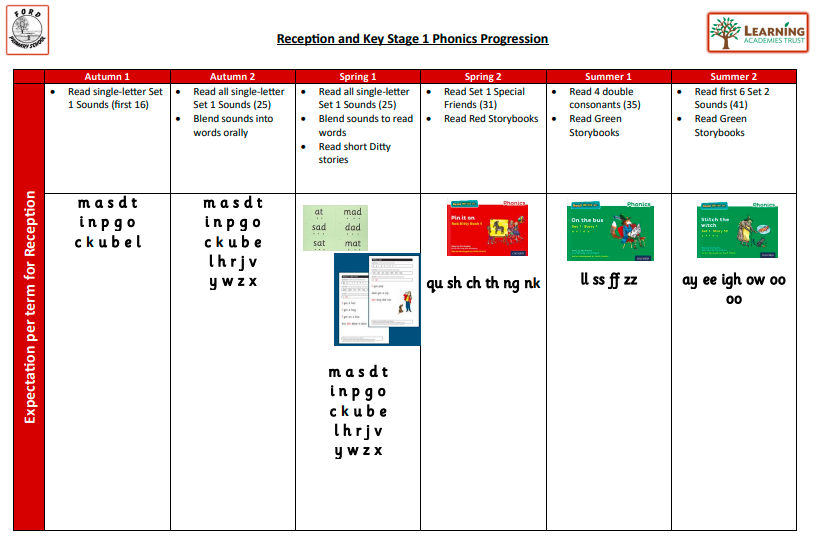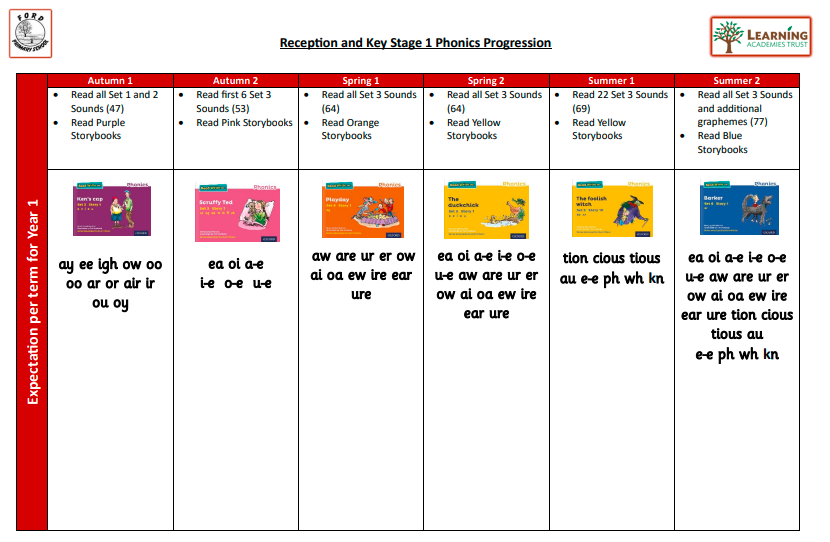Phonics | Overview
Intent | Impact | Implementation at Ford
Here at Ford Primary School, we follow Read Write Inc (RWI), a synthetic, systematic Phonics programme. All phonics planning and teaching has been adapted to meet the requirements of Statutory Framework of the Early Years Foundation Stage (EYFS) and the National Curriculum in order to provide a robust, consistent and high-quality level of provision. All children from Reception through to Key Stage One, and a selected number of children in Key Stage Two who still require support with their reading, will learn Phonics as part of their day-to-day learning. This journey of learning to read begins in our Nursery in the Summer term and those children who join us in September, begin on their first day in Reception. Once the children have completed RWI, their phonics journey continues throughout the school as phonics is embedded within all whole class reading and writing lessons. At Ford Primary School, reading is at the heart of our curriculum and we want all of our children to have the skills and confidence to access a wide range of texts as research shows that children who learn to read early go on to succeed both in school and in life.
In Phonics, we focus on:
-
To teach children aural discrimination, phonemic awareness and rhyme awareness to support in the application of reading and writing.
-
To encourage repetition and consolidation, so that decoding and the skills of segmenting and blending are automatic and aid reading fluidity.
-
To learn to read and write all 44 graphemes in the English language.
-
To learn to read all 75 phonemes within the RWI programme.
-
To learn specific strategies to help them remember common exception words.
-
To apply their phonic knowledge across all curriculum areas.
-
Each group prepares their resources carefully to ensure consolidation opportunities and progression through the acquisition of new knowledge.
Implementation |
Children are grouped according to their RWI knowledge (based on baseline and six subsequent assessment points throughout the year). However, if a RWI group leader identifies that a child needs to move groups, this is discussed with the Phonics Leader and the child is moved groups with immediacy. These responsive actions ensure that all children are receiving targeted and bespoke Phonics learning are able to make the best possible progress. Analysis of the data by the Phonics Leader ensures groups are reviewed regularly and intervention is provided when necessary. Groups are led by trained members of staff who also receive weekly practice sessions, coaching and monitoring. The RWI programme have detailed lesson plans and each group has specific plans which cater for their developing needs. Children working below the expected level have 1:1 Tutoring to ensure all children 'keep up' and do not have to 'catch up'.
Impact |
Children across the school have positive attitudes towards their learning in Phonics and make excellent progress; they enjoy phonics lessons and become confident, successful learners who achieve regardless of their starting points. The teachers and teaching assistants will assess the pupils’ achievements against the expectations shared from the RWI programme. Throughout the sessions, teachers and teaching assistants will review learning to ensure subsequent lessons are responsive.
The children will complete 6 half termly RWI assessments and at the end of Year 1, will complete the statutory Phonics Screening Check. They will then attempt the PSC again in Year 2 if they did not meet the threshold.
Phonics Coverage
Reception

Year 1

Year 2

